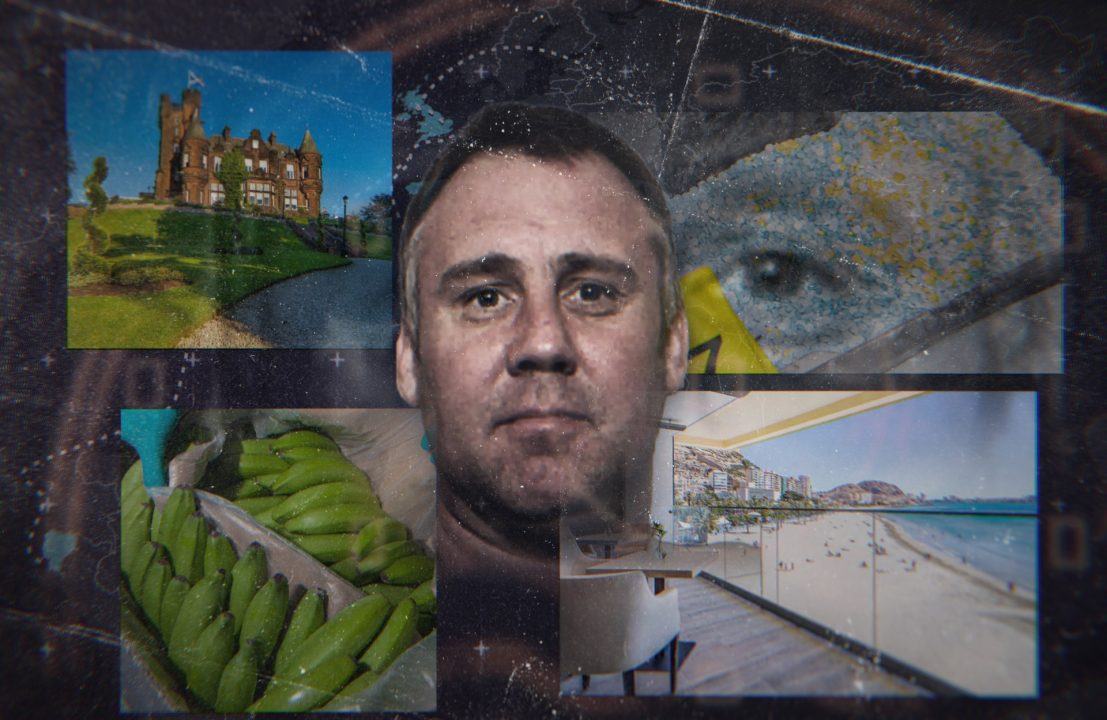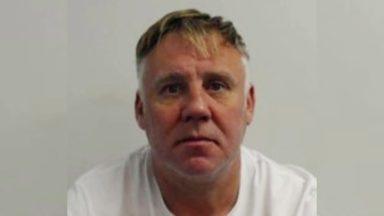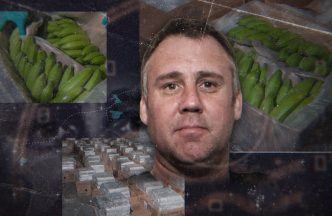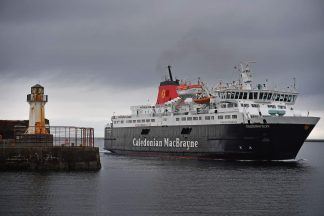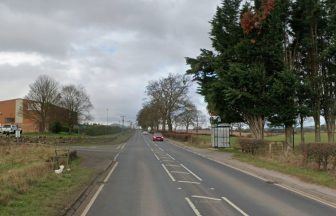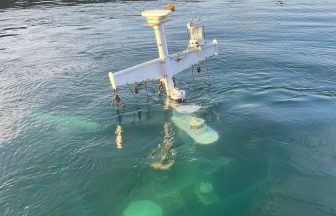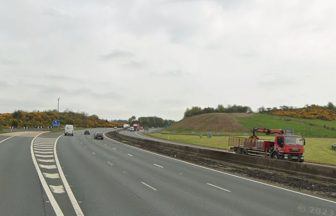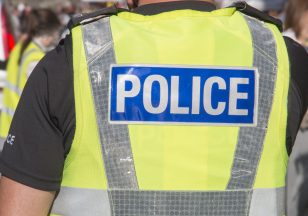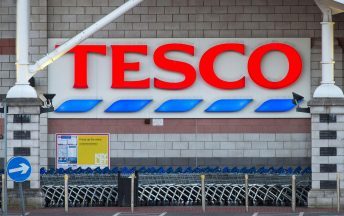A Valentine’s Day rendezvous in Spain’s sun-drenched Costa Blanca proved to be the downfall for notorious gangland criminal Jamie “Iceman” Stevenson.
One of the UK’s most-wanted fugitives, Stevenson was unaware that police had been tracking the fruit seller he met at Alicante’s Melia Hotel that day on February 14, 2020 – David Bilsland.
He ran a business called Glasgow Fruitmarket on the city’s Kennedy Street, which had been importing large quantities of bananas from South America.
Police Scotland, the National Crime Agency and the Crown Office had been monitoring the shipments – suspecting they were a cover for other activity.
Between May and October 2020, more than 20 weekly imports were scheduled. Thousands of pounds were wasted on dummy runs, and thousands of bananas were disposed of, some in skips.
Officers followed Bilsland as he made the one-day trip to Alicante in February that year. He was booked on a flight with no bags and police believed he was attending a meeting related to criminality.
Spanish surveillance personnel were informed and attended at the Melia Hotel. UK investigators couldn’t believe their eyes when they saw the photos that had been taken.
Bilsland had been meeting with Stevenson.
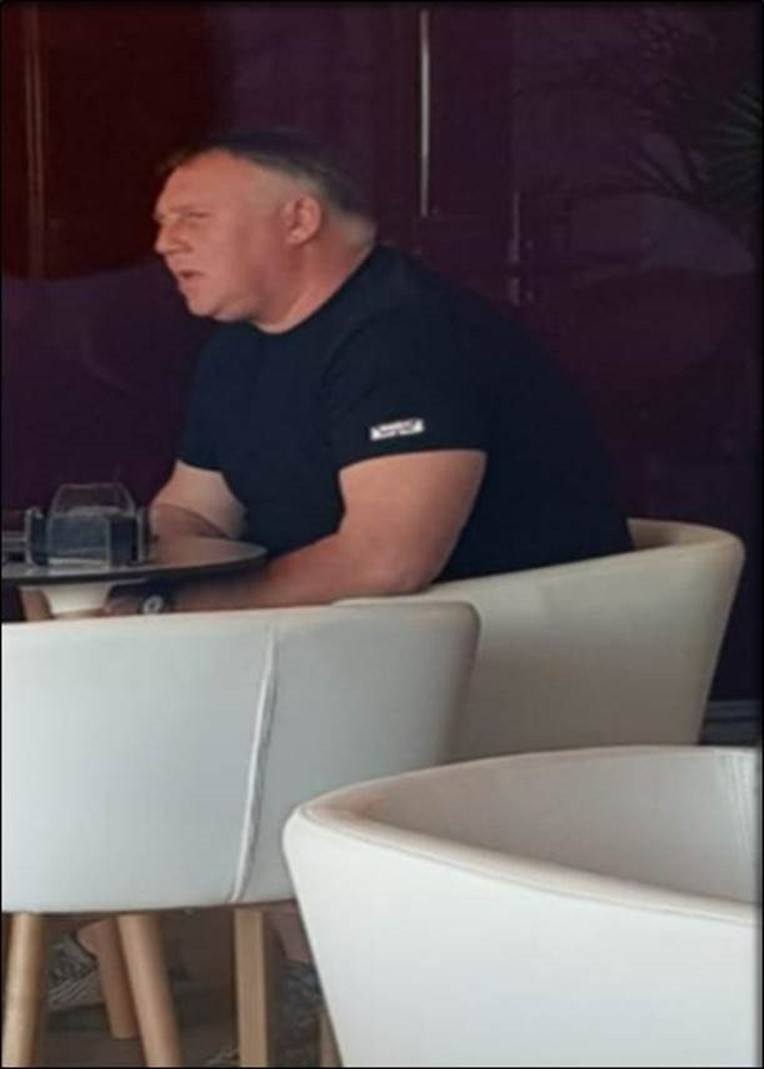
Ecuador to Glasgow
Gerry Mclean, regional head of investigations at the National Crime Agency, said: “On the face of it, David Bilsland is a respectable businessman, who ran a fruit and veg wholesalers and distributors in Glasgow.
“He appeared to have quite a stable life but he clearly had relationships with serious, professional criminals who were operating at a very high end on the international stage.
“He used and exploited some of his own business contacts, both here and across Europe, to enhance the activity of the crime group.”
McLean said the organised crime partnership – comprising Police Scotland, the NCA and COPFS – had received intelligence about Bilsland that “seemed to be a bit unusual”.
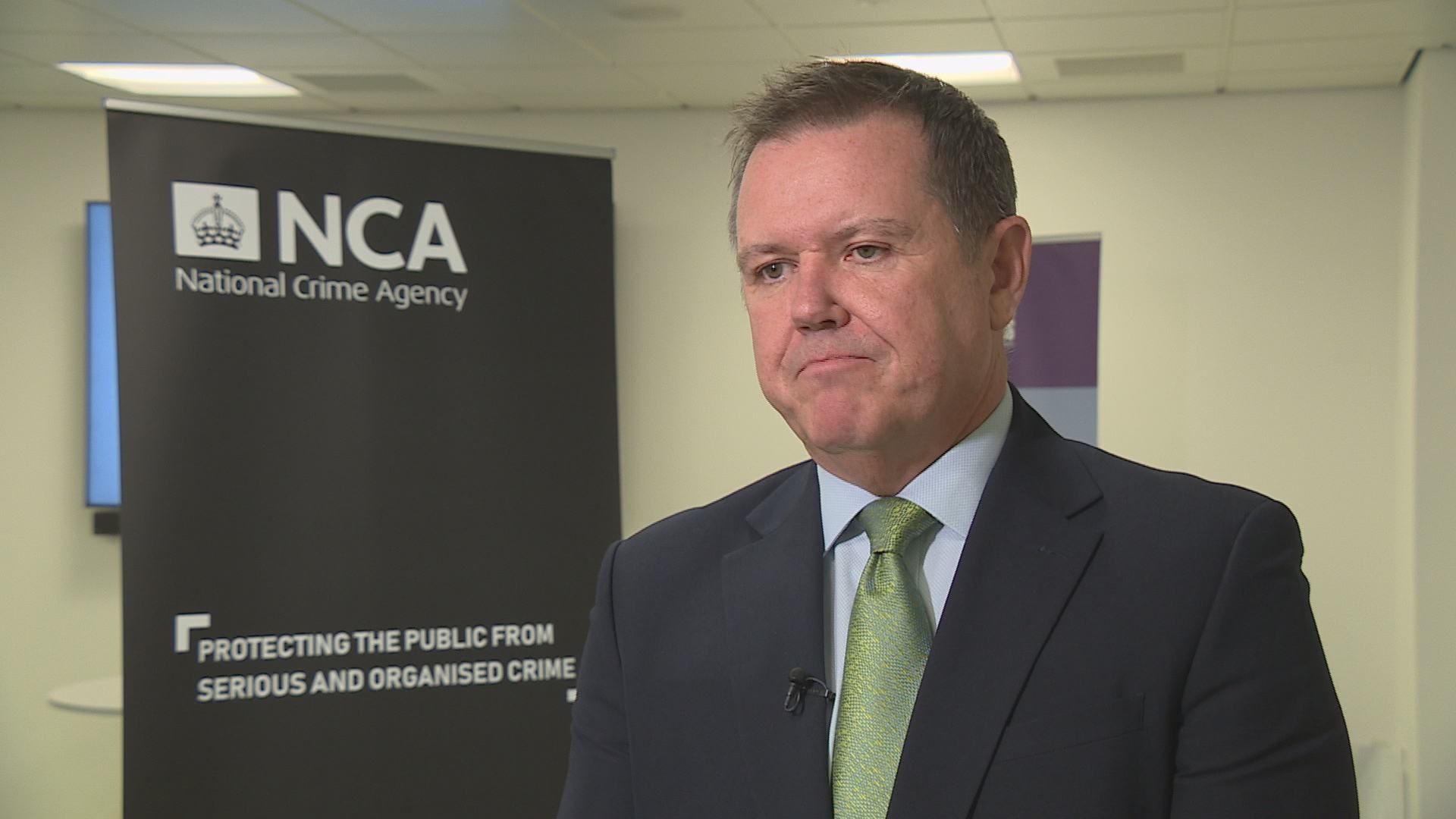 STV News
STV NewsHe added: “The question for us was who was he enabling? Who was he providing a level of service to? When we found he was travelling to Spain, possibly for a meeting, we spoke to our partners in Spain.
“We were really quite surprised when we learned that he met with Jamie Stevenson and from that point on, the investigation took on a different dimension and our investigations became more targeted in the weeks and months that followed.
“Jamie Stevenson is familiar with law enforcement and law enforcement is familiar with him, but it really was quite a surprise that it was him and his wider network. He was operating at that top table and had good international contacts.”
EncroChat
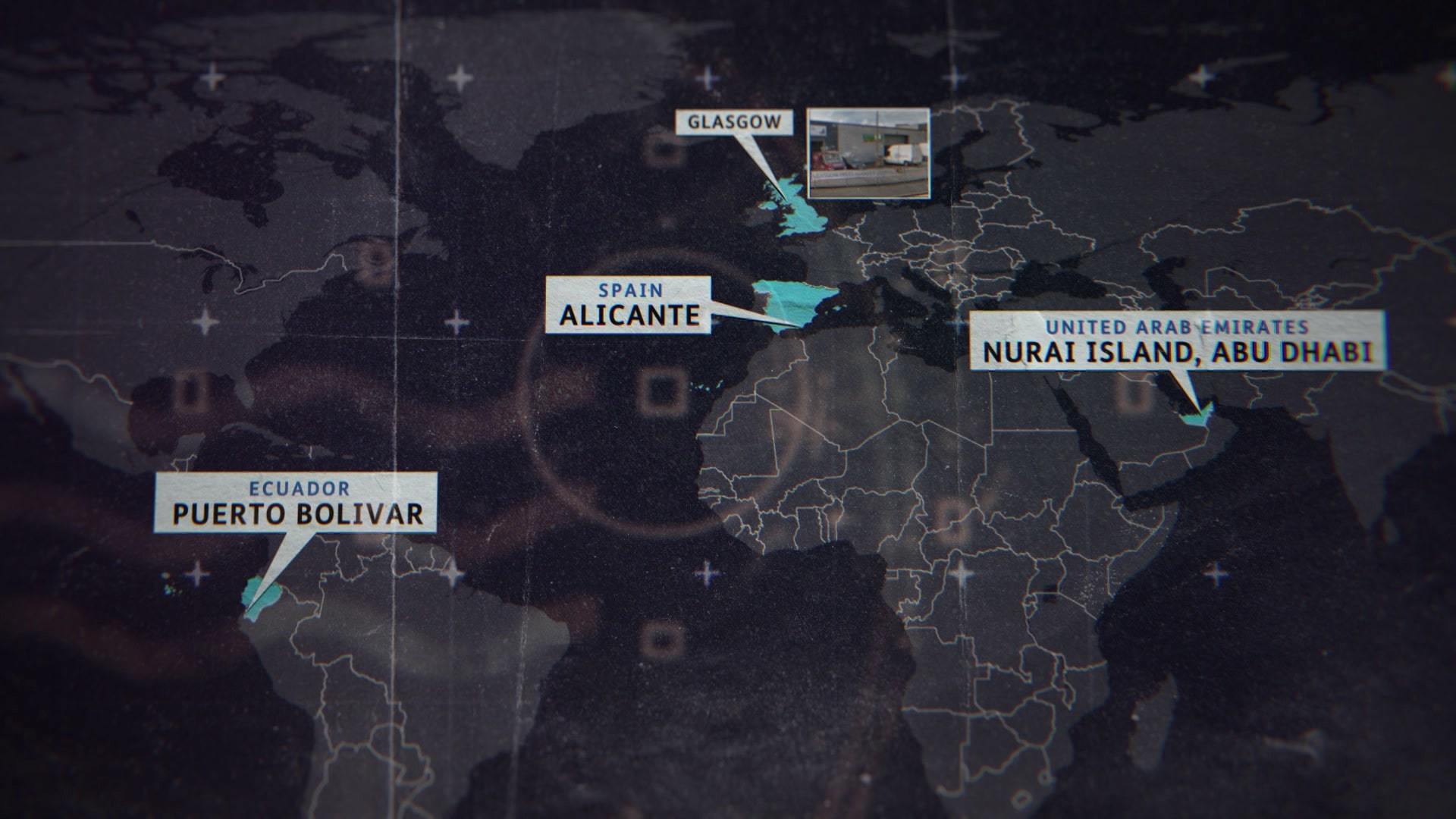 STV News
STV NewsIn April 2020, French authorities hacked into EncroChat – the largest encrypted online platforms favoured by criminals.
That produced “a snapshot in time” and police were given 50,000 lines of raw data. Investigators had an insight into the work of organised crime groups.
Each device costs around £1,500-£2,000 and gives the user a handle/codename rather than phone number, allowing investigators to work out the structure of the business.
Gangs were brazen in their use of EncroChat and sharing information. Stevenson even shared a photo of his driving license. Photos from holidays and birthday messages were found among the pictures of drug packages that were later seized.
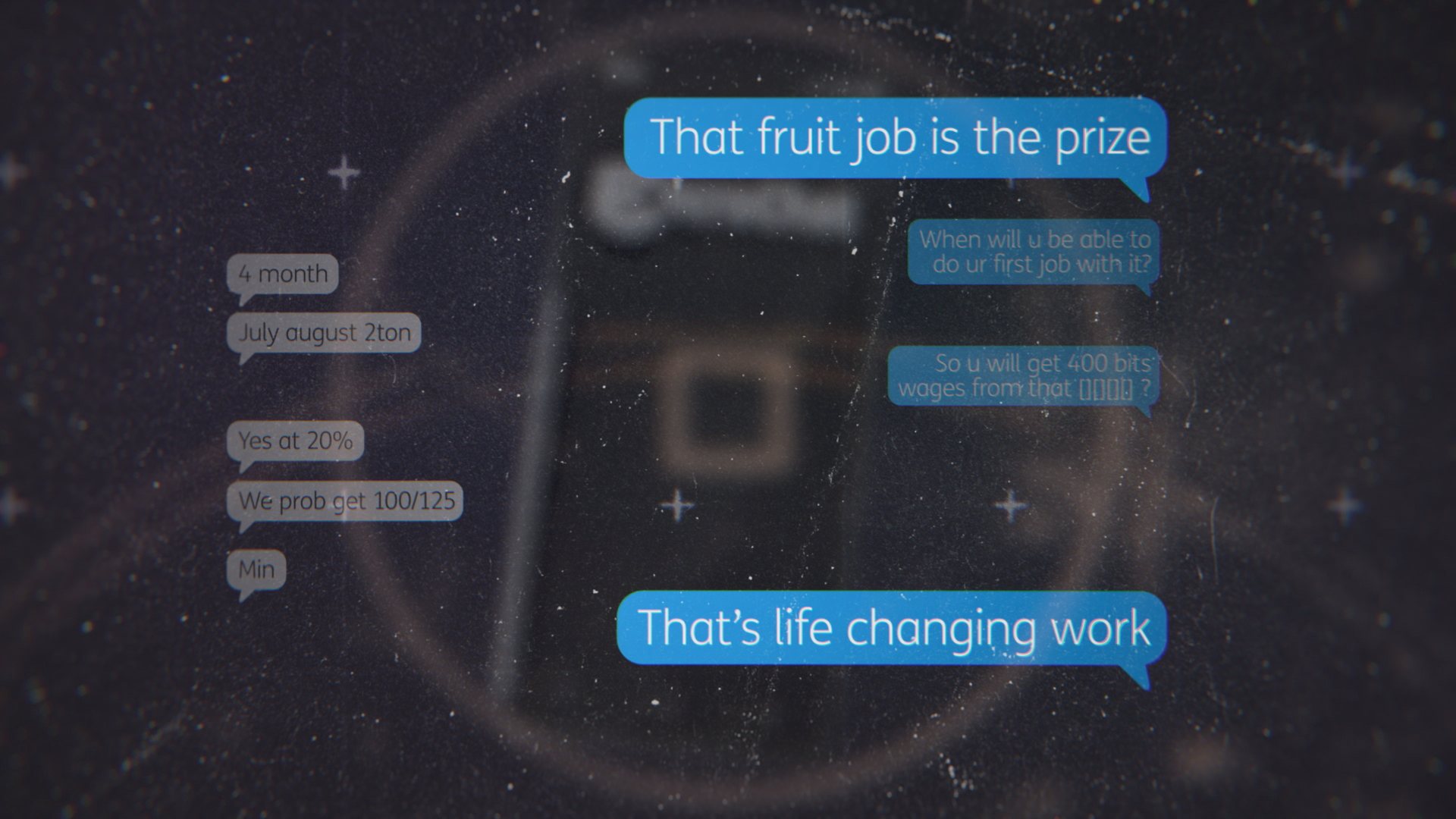 STV News
STV NewsSineidin Corrins, deputy procurator fiscal at the Serious and Organised Crime Unit, said: “EncroChat was a major tranche of evidence in this case, but that meant absolutely voluminous amounts of electronic messages and documentation, which law enforcement had to collect and gather as evidence.
“The specialist team of officers had to then go through all of this in minute detail. They had to consider extensive chapters of evidence and pull together all of the threads within EncroChat to build the case against each of these individuals.
“The crux of a lot of the evidence was to establish who was using each of the EncroChat handles – code names if you like – which the accused use to communicate with each other.
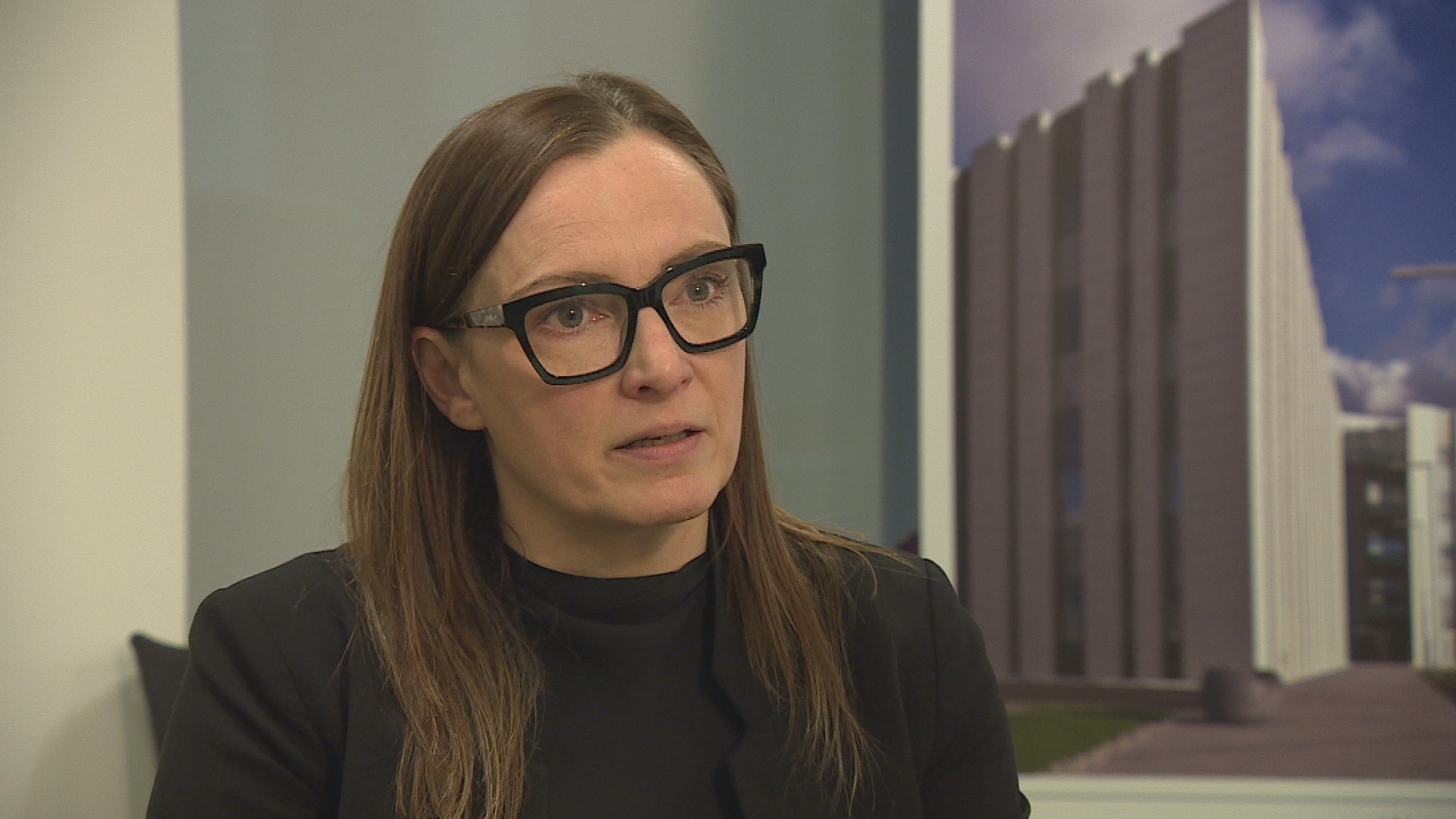 STV News
STV News“We had to match their ingenuity in using these devices. We had to track their brazen chat about building a global drugs empire, and we had to pull that together in a way that built an evidential case against them.
“That meant we could build a really strong prosecution to present to a jury and ultimately, the irrefutable evidence let all six to change their pleas to guilty. All accused are now serving considerable prison sentences.”
EncroChat expert Tony Saggers, an organised crime consultant who has spent 30 years in law enforcement, said anyone using the communications network to source and import a tonne of cocaine from Latin America is “pretty much top of their game”.
He told STV News: “EncroChat tends to be the reserve of people operating at the higher end of organised crime and those working for them.
“What we see are class A drugs like heroin and cocaine being the predominant activity of those involved with EncroChat but not exclusively. Cocaine is a drug that is in much wider demand, so naturally there will be more people trafficking it.”
“It’s not just about being able to afford to fund that level of activity, which of course requires a building up of assets. It also requires networking, trust and familiarisation in a region that’s often fraught with violence and kidnap and extortion.”
Saggers also says the convictions won’t put an end to the problem of drug smuggling.
“Demand in the UK for cocaine is enormous,” he said. “While it’s really important that we remove significant operators, the problem persists because tomorrow the same number of users and the demand will exist. It’s a constant cat and mouse situation.
“There will be a high volume of assets. Substantial amounts of cash have been recovered but it will be a relative tip of a bigger iceberg. To get the stage where you are moving £1m worth of cash and a tonne of cocaine in one go, you’ve had to have been successful in the past.
“Finding assets and recovering them will largely depend on how those involved have hidden them, moved them, or normalised them back through money laundering.
“That is not to say that it can’t be achieved. It will depend largely on a combination of law enforcement, skill and capability, which I have no doubt in, but they are up against the ability of organised crime groups to hide those assets.”
Arrest at Scottish castle
Two major developments in the investigation took place on June 12, 2020.
Millions of etizolam pills were seized in a raid on a factory in Kent and Stevenson was arrested in Glasgow.
He had been sitting at a picnic table outside Sherbrooke Castle in the city’s southside when plain-clothed police officers moved in to make the arrest.
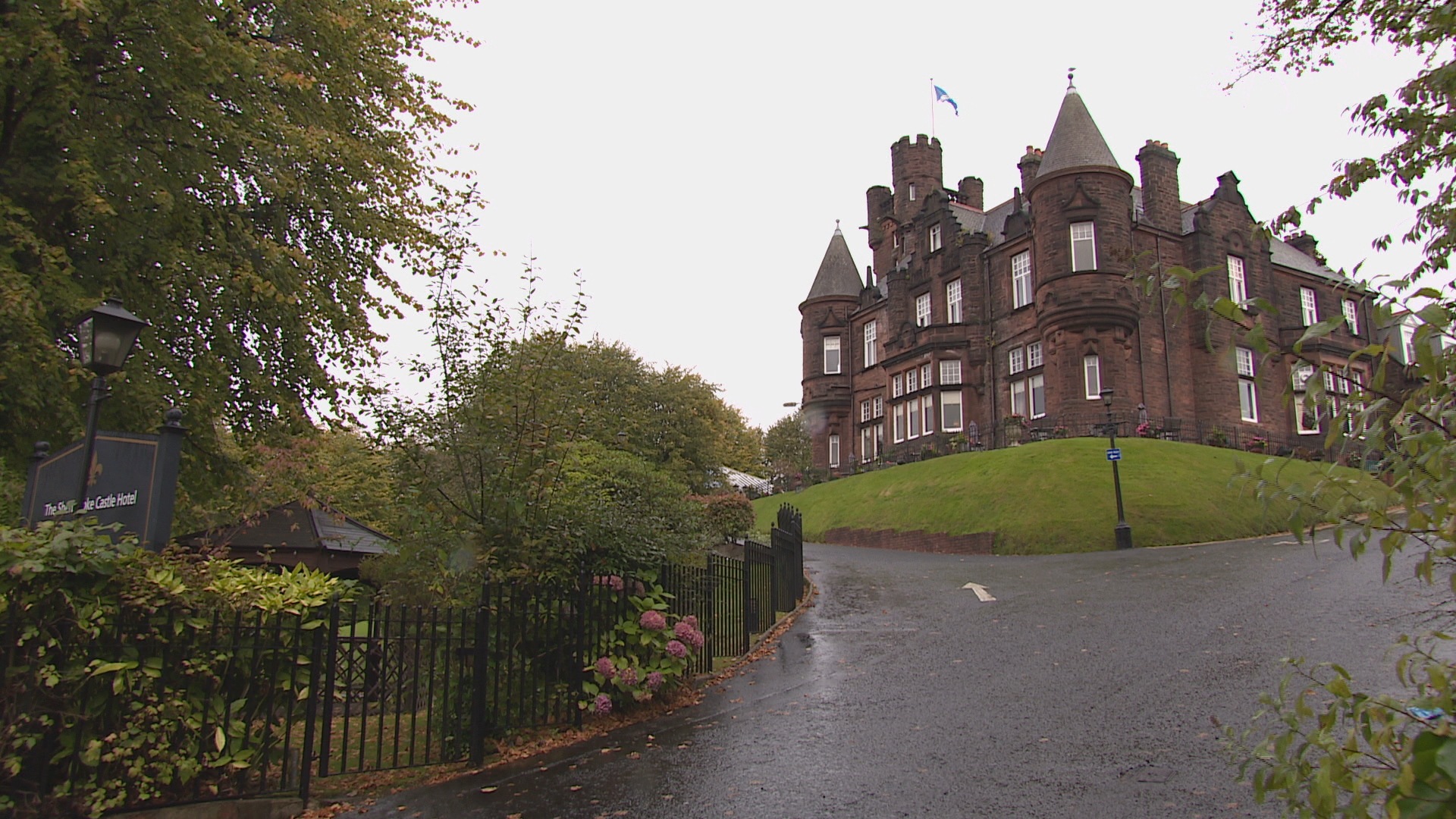 STV News
STV NewsStevenson ran and left his EncroChat device on the table. He managed to get 100 metres away but then slipped and fell down a steep embankment.
As soon as he realised it was police and not an assailant or adversary after him, Stevenson calmed down and appeared somewhat relieved that it was an arrest rather than an attempt on his life.
Police were seen as the lesser evil.
Stevenson was taken to Carlisle and was then released on bail.
A month later Stevenson fled the UK.
But his escape was short-lived as two months after an NCA campaign, in which he was named as one of the top ten most wanted fugitives, he was arrested in the Netherlands while out jogging.
Conviction
Stevenson had boasted how his worldwide drug smuggling ring would rake in “life-changing” amounts of cash.
But the 59-year-old pleaded guilty in August to trying to import £76m of cocaine from Ecuador stashed inside boxes of bananas.
Stevenson admitted two charges – of directing a serious criminal offence of importation of cocaine, and of being involved in organised crime through the production and supply of etizolam, often known as street valium.
It took four years for investigators to prepare their case. They said the evidence gathered was “overwhelming” and believe it contributed greatly to the guilty pleas and a “domino effect” when it came to court.
Corrins said: “This conviction is monumental. Jamie Stevenson and his gang were involved in major drug trafficking on an industrial and global scale.
“Police Scotland, NCA and the COPFS had a specialist team working for a number of years in preparing this case, meticulously pulling together all of the threads of evidence that brought these men, who are senior players in this Organised Crime Group, to the dock of the High Court.”
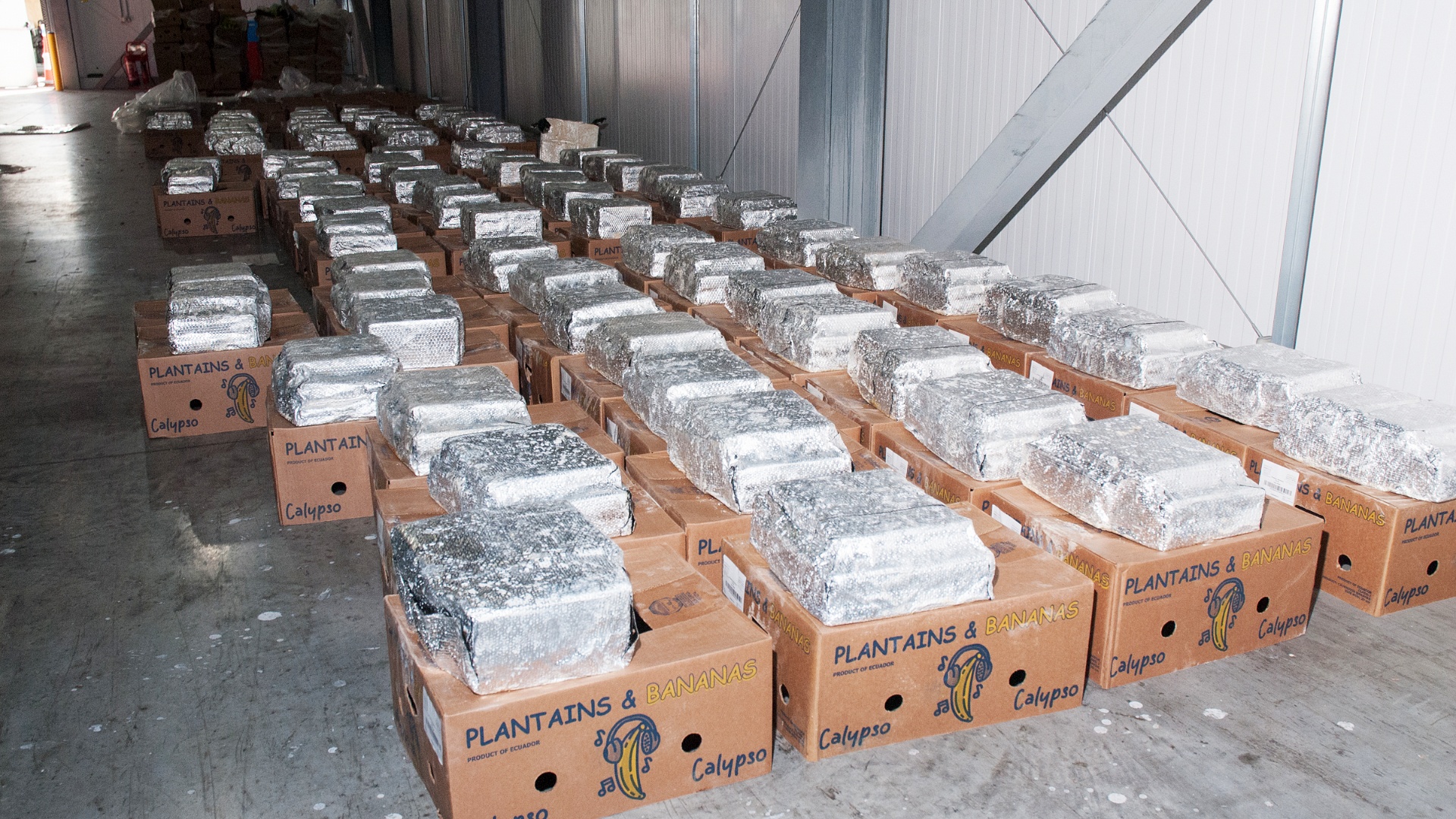 COPFS
COPFSMcLean added: “This conviction was a unique opportunity to take down some of the top people involved organised crime in Scotland, across the UK and indeed internationally.
“There are a number of people involved in organised crime for local or domestic markets, but this was on a different level, with international contacts to South America.
“Using the importation of fruit as a cover, originating in Ecuador and moving through various points into the UK, this would have required the degree of sophistication and international networks and contacts.
“Also the amounts of drugs that they were moving tell us this was not just for the Scottish domestic market. They were servicing, no doubt, other parts of the UK and perhaps even Europe.”
Police Scotland described Stevenson as a “dangerous individual who is responsible for a catalogue of serious crimes” in an appeal linked to the case.
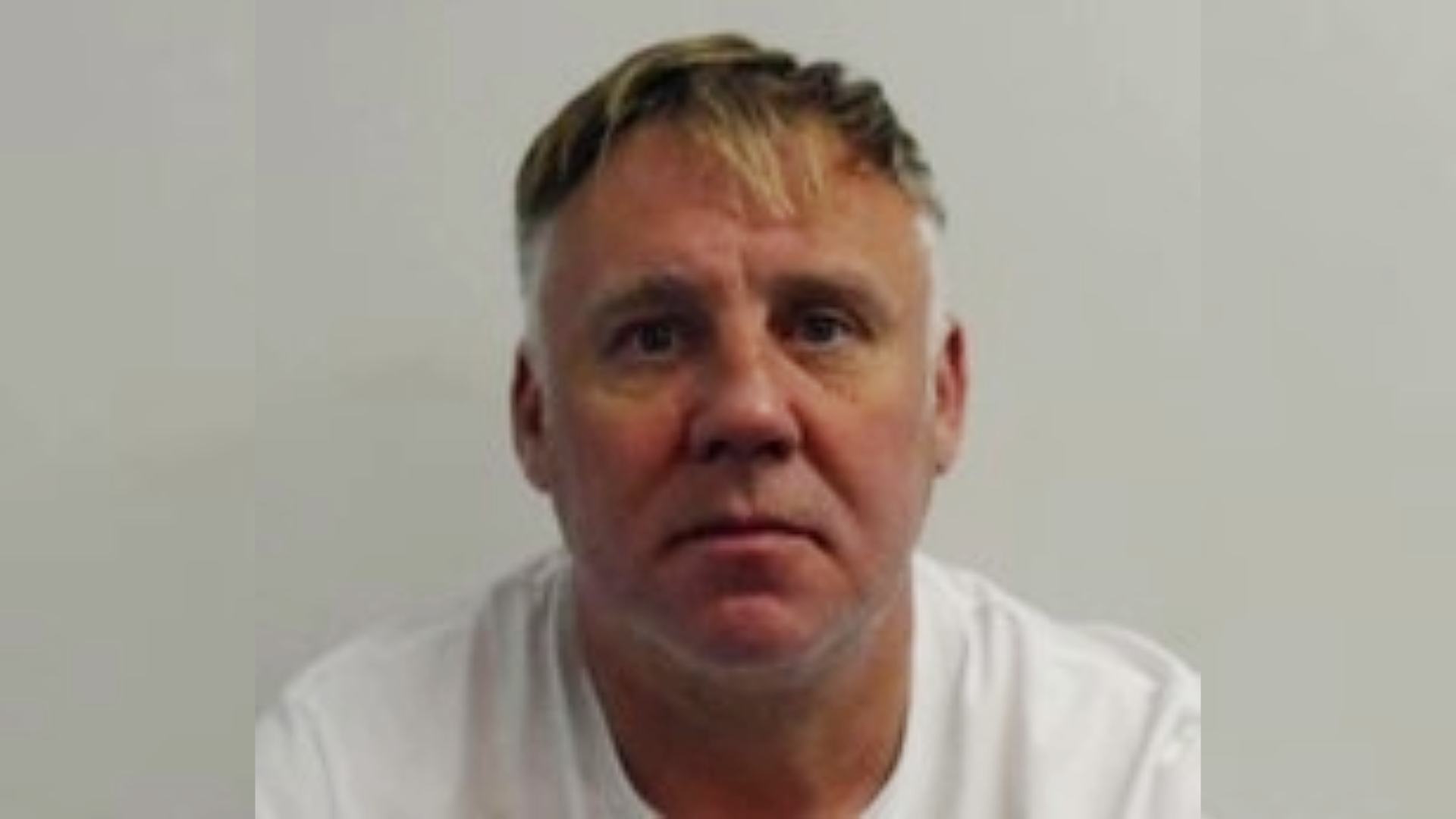 Police Scotland
Police ScotlandDetective chief superintendent Dave Ferry said: “We realised after that meeting in Spain that we were probably looking at a very large enterprise.
“EncroChat then filled in the gaps. It helped us gather all the pieces. We could see exactly at what levels everybody was operating, and how the operation was being orchestrated.“
“James Stevenson was a serious player acting at the absolute top level of criminality in Scotland. The crime group, led by Stevenson, has now been effectively dismantled. However, we can’t be complacent. Obviously where there is a demand for illicit drugs, somebody will fill that demand.
“The level of drugs that James Stevenson was bringing into the country was on an industrial scale – a tonne of cocaine and millions of etizolam tablets. It’s absolutely at the top end of criminality.
“This case highlights the true scale and international reach of a criminal acting in the top tier in Scotland. But they are not untouchable.”
Sentencing
Stevenson was jailed for 20 years when the case called at the High Court in Glasgow on Wednesday.
He was sentenced to 12 years in prison for directing the cocaine smuggling operation and a further eight years for running an illicit pill factory.
Fruit market trader David Bilsland, 68, entered a guilty plea to a charge of agreeing to import cocaine and co-accused Paul Bowes, 53, pleaded guilty to being involved in organised crime linked to the production and supply of class C drug etizolam at a string of premises including the Nurai Island Resort in Abu Dhabi, in London and in Rochester, Kent.
Both were sentenced to six years.
Vehicle recovery firm owner Lloyd Cross, 32, pleaded guilty to involvement in the plot before the trial and was also given a six-year sentence.
Stevenson’s stepson, Gerard Carbin, 44, and co-accused Ryan McPhee, 34, admitted being involved in organised crime through the production and supply of etizolam. Carbin was sentenced to seven years, while McPhee was given a four-year prison sentence.
Follow STV News on WhatsApp
Scan the QR code on your mobile device for all the latest news from around the country


